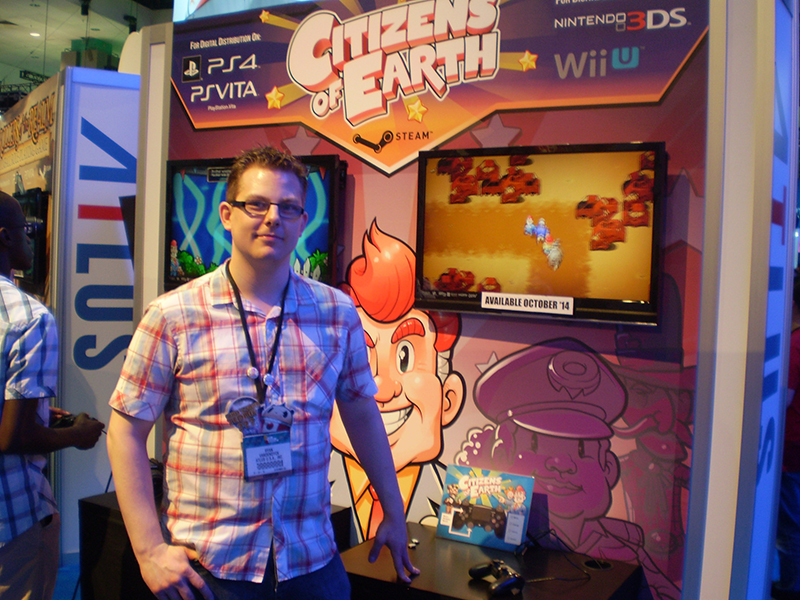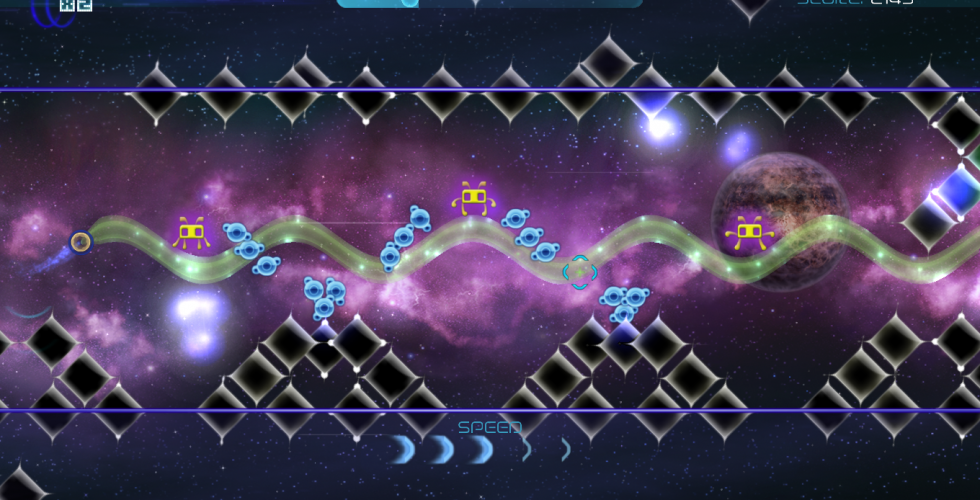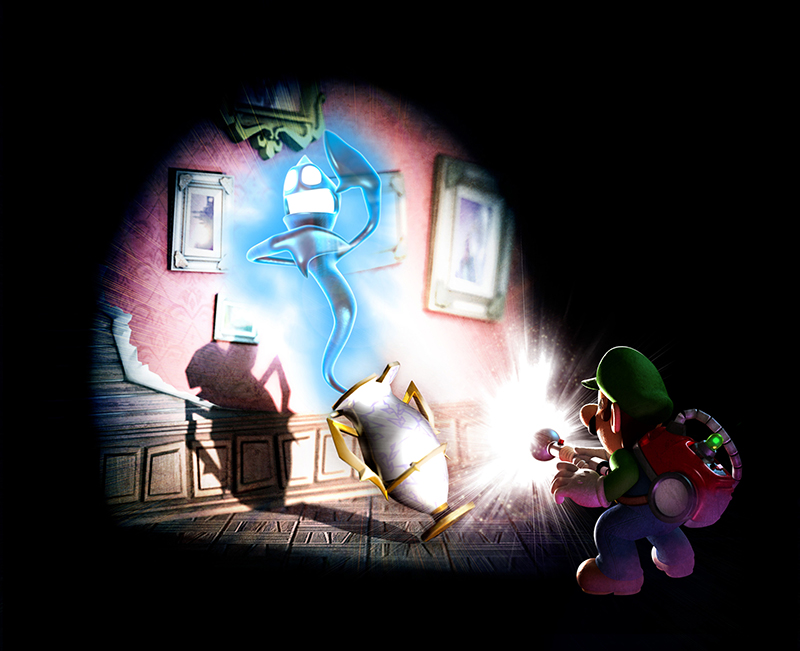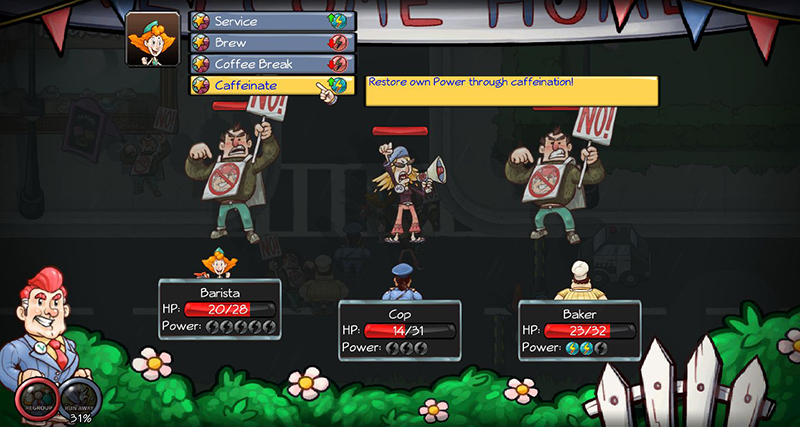Like many of you, I've enjoyed some great JRPGs. In fact, they're one of the reasons I started getting into the Japanese culture in the first place. That being said, when someone says they're making a modern JRPG, especially one inspired by a personal favorite series, I become suspicious. Maybe, in all honesty, I should say I get upset. Sure, other people have played it to. But some of these games mean a lot to me. It's rare to find others who I feel "get it," especially amongs game developers who may be dropping a name to attract an audience.
Ryan Vandendyck is not one of these developers. Ryan and his company, Eden Industries, slowly earned my trust, enough for them to be the first Kickstarter I ever funded. Even after his Kickstarter had failed, Ryan kept pushing. I kept in contact with him to see what his game, Citizens of Earth, was about for another website. While talking about some of the games he'd worked on, I learned something: The difference between the localization of western games and Japanese games had changed in areas that were unexpected. I'm no stranger to playing the Japanese version of a game, but I had assumed my knowledge was fairly complete. This was not the case, so I hunted Ryan down at his booth at a recent gaming even to ask him some questions.
Who is Ryan Vandendyck?

Ryan is the founder and CEO of Eden Industries, an indie game development company. He has worked with several game companies, including Ubisoft, Activision, Sega of America, THQ, and Next Level Games. Through Next Level, Ryan was able to work with Nintendo of Japan on games like Super Mario Strikers and, more recently, Luigi's Mansion: Dark Moon.
After striking out on his own and having his first Kickstarter fail, he was still able to make his game Waveform and have it localized in Japan through PLAYISM and their parent company Active Gaming Media. This is why I felt confident backing his second game, Citizens of Earth, which also went to Kickstarter and failed, but was picked up by Atlus USA after Eden Industries kept working on it, getting the game OKed by Steam and being set to release on the Wii U before Atlus was able to lend them a hand.
As you might suspect, Ryan isn't one to give up. While he's not as famous as Shigeru Miyamoto (yet), he has been interviewed by several popular gaming websites, most notably Destructoid on two occasions. A quick Google search will also reveal a few of this other interviews on various topics. However, I wanted to focus a bit more on his more recent experience working with a well known Japanese company like Nintendo, compare it to some of the American game companies he's worked for, and also see what it was like moving a western game to Japan.
The Game Making Game: East vs. West

So this wouldn't be much of an article if there wasn't always some preconceived notions set in place. I'm sure enough people are familiar with some of the ideas that Japanese businesses do things differently, but also that Japanese, heck, Asian games in general, are different from western games. The often cited example of localization changes made between the two areas is that of Super Mario Bros 2 in Japan, which was The Lost Levels in America. The Japanese game was mostly a remake of the original, but made more difficult, which Nintendo of America feared would put-off too many western gamers. I had assumed that, out of all the localization issues in mostly action games, like Luigi's Mansion: Dark Moon, difficulty would surly be one thing that changed. Only, it didn't. Ryan said he was never approached about changing the game's AI for a different region. In fact, he was never approached about any localization needs at all. He said:
"Nothing was ever mentioned to me about it, no. Personally I think such an attempt would have been very misguided (which is why I think it wasn't done). The AI was very finely tuned in the game, and included intensely finely detailed things like movement speed, animation speeds, transitions between animations, turn radai for characters, etc. Re-tuning that all would've been very difficult, and I think would've resulted in a worse game since the way it was tuned was meant to be the best! And thus any deviation from that would've probably just made it worse."

Now, this isn't to say that localization of gameplay in games in dead. I know that in massively multiplayer online games (MMOs), Asian games still are known for having a grind, or a large amount of rather simple but repetitive actions needs to progress. It wasn't always that way, and is changing, but from personal experience, I'm still noticing that asian games often ask me to gain more experience or kill more monsters to, say, gain a level, than western MMOs do, and that this is changed when the game is westernized, such as with a certain Korean MMO that is still being localized. However, for actual difficulty, this difference may be fading out. Ryan's experience with getting his first game, Waveform, localized was fairly easy. At no time was Ryan asked to make his game more difficult for Japanese players, and PLAYISM never requested permission to do so on their own. In fact, the only change they were interested in concerned fonts, since kanji is just a wee-bit more complex than our English characters. Because of that, multiple fonts are needed for playing the game on different devices that use different resolutions so that the font can be, well, read!
Much like with gameplay, changes with business interactions aren't what they used to be. From Ryan's experience, they still occur, but the severity of the situations isn't as bad as some people in previous generations may have mentioned. At least to Ryan, the relationship between Next Level Games and Nintendo was a "pretty close relationship by the time Luigi's Mansion: Dark Moon was in development since they had worked on many titles together in the past." He didn't notice any major moments of culture shock for either party, but still there were differences:
"For me the prevailing surprise/difference was the way people would state their opinion about various things in the game. So a North American developer might go,"Hey this feature really sucks, have you tried x instead?"
And a Japanese one would go, "We notice this feature is exhibiting some strange behavior. We'd appreciate if it functioned more in line with the previously stated specification." Which is somehow both more polite and more forceful at the same time! So trying to interpret the cross-cultural way of expressing ideas is always a challenge."
The usual business about certain procedures and protocols, however, seems to be unchanged. Ryan said:
"I think with western companies, everything is a bit more open, and sort of approachable, and you can chat a bit more, but with the Japanese, it goes through a lot of layers of protocol, and bureaucracy, and things like that, so definitely, sometimes it feels like you're jumping through a lot of hoops, but again, to their credit, they have a really good attention to detail, so sometimes in the end, if that makes a really good product, even if there's trouble along the way."
Now that attention to detail might sound a bit forced to some, but let me put in some context. The very first thing Ryan mentioned when I asked about the difference between working with Nintendo versus western companies was their "laser like focus" and wanting to make their game better. It isn't that western games didn't want to make a good game, but there was more pressure to make a deadline for, say, movie ties-ins. Even if he wanted more time, he'd be told the game just had to ship as is with some western companies. This could just be a Nintendo thing, since from feedback, Ryan was never made aware of anything his game might have lacked. From gamers, players would say anything from "this game is too hard" to the usual "I love playing this with my kids" type of thing. From the Japanese, though, was just compliments, like "Thank you for making this game." Granted, this could be due to the language barrier, but online, one would think if someone were very upset, they could at least run their sentence through a translation website and dump that into a review for the game in order to get Ryan's attention.
Sadly, those curious about more personal sides of the business will have to look for different voices, as Ryan's Japanese co-workers generally had little interaction with him or were dealt with through a different company.
East Meets West, Then Wants to Re-Meet East: Citizens of Earth For Japan?
As mentioned, Ryan's current project, Citizens of Earth, is essentially a JRPG made in the west, currently looking at an October 14 release date. Ryan's unsure what, if anything, might be changed in the localization process. But with such a diverse cast of characters in both genders and ethnicities, one would hope that there would be little done to change the game. In fact, there was a recent contest to allow fans to make their own addition to the roster, which had some interesting results. The winning citizen was the "bee-keeper girl," but there was also an astronaut, LARP wizard, puppeteer, and a stuntman. Ryan mentioned ,"There were some pretty bizarre ones. We had a whale trainer, there was a guy… I don't know, he wore a paper bag on his head, there were a lot of people who were just video game fans, video game testers, but we felt those final five[…] would be a good fit." While I would have loved the LARP wizard, that one certainly might have been hard to localize, though I feel the Whale Trainer could have been a good fit and a strong nod to the Pokemon fans.
Ryan says that the gameplay should remind people of games like Dragon Quest and Pokemon, but from what little I'm allowed to share (due to my alpha non-disclosure agreement), it will naturally remind players of Earthbound as well. The combat certainly feels like something I'd expect from a JRPG, and that isn't bad, especially when it has a modern feel, largely thanks to rolling hit points instead of straight subtracting of damage from health totals. However, you can't just copy what's already been done, and the game overall had a western touch I couldn't quite put my finger on. Ryan helped me out by saying:
We took inspiration from games like Skyrim where you're never at a loss for side-quests and exploration while you weave in and out of the main story. In Citizens of Earth, most of the side-quests involve recruiting new Citizens to your team, though of course there are plenty of other things to do and see as well!

Now, most JRPGs do have sidequests, especially these days, but one thing I felt that stood out (that you could experience from the game's demo) were world objects that grant you experience for exploring. For example, examining a trophy in a traditional JRPG when I was a kid usually had some funny reference to something in the real world, or might give me some in game currency or item. Many modern western games, however, will often grant experience for this exploration. I think it's a small addition, but one I've really enjoyed in, say, Bioware games.
The game also utilizes different kinds of mini-games to change things up. For example, to recruit a used care salesman, your character becomes a car and you do laps around a track. If you touch another car, your RPG battle begins, but you use the car instead of your own character in the fight. Other mini-games include battle casinos, a Dance Dance Revolution inspired mini-game, and a soda drinking contest, among others you'll have to find yourself. Personally, with respect to my NDA, what I saw in the demo alone seems like it wouldn't need too much localization outside of translation. According to Ryan, Atlus of Japan representatives visited his booth at E3, but were in and out before he was made aware of them. With the game being released on PS3, PS Vita, 3DS, Wii U, and Steam, it should be easy to market, especially since the team's hard work on making each system's port feel natural, not to mention exclusive content for each version.
If the game does indeed get localized for Japan (which is what Ryan is hoping for), I'd love to ask Ryan what the changes were and why they were made. Perhaps it'll be a future topic I'll cover.
If you would like to read the full interview, you can do so here.
